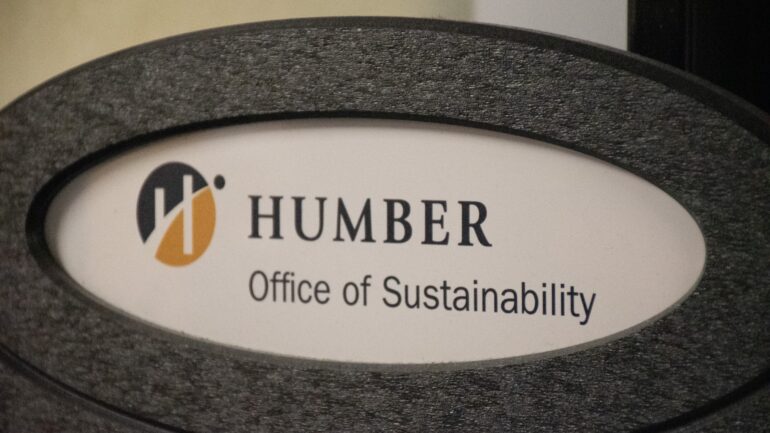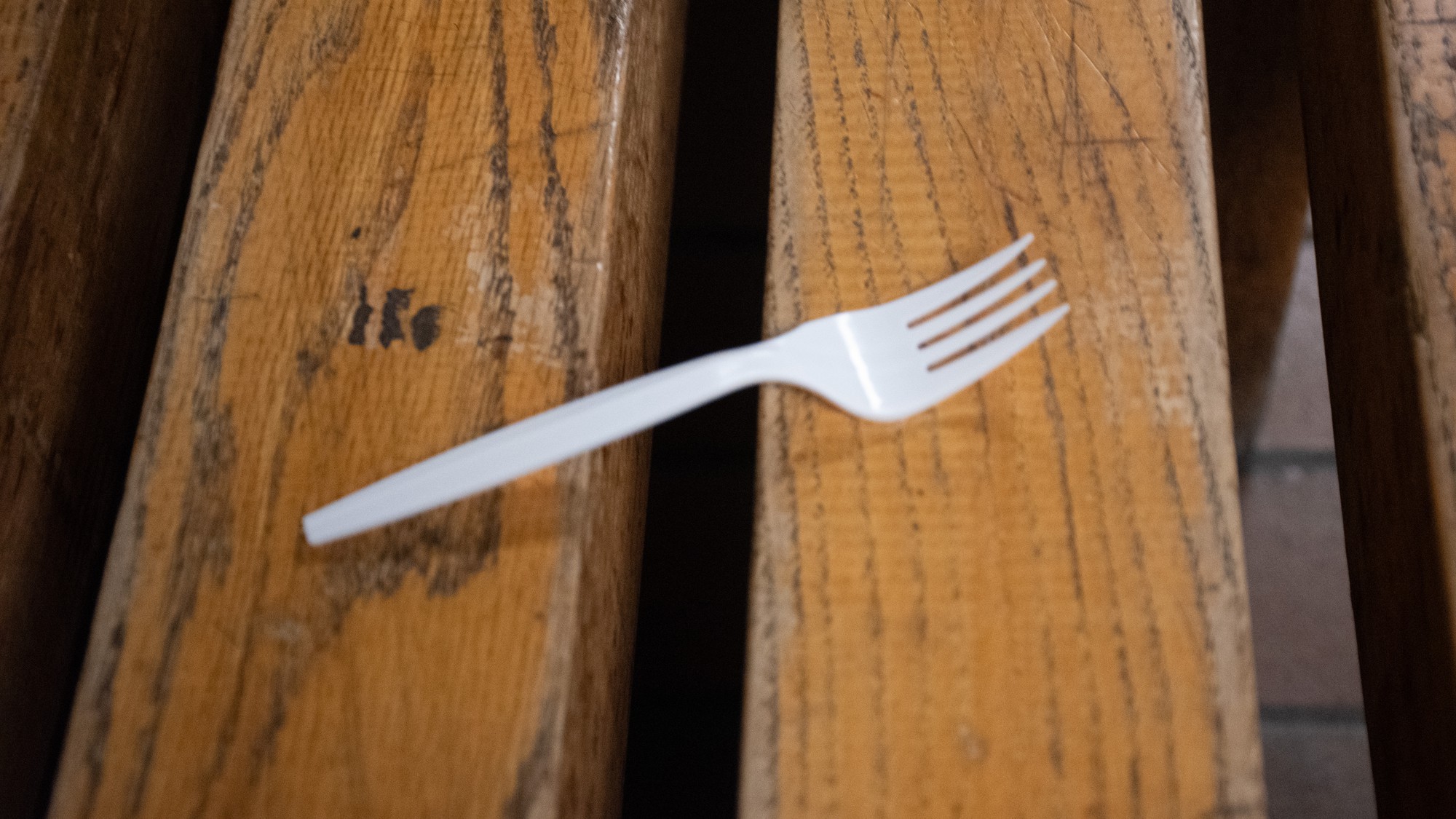The Canadian government has regulations in place that will ban the sale of single-use plastic utensils starting next month, according to a policy statement uploaded to the government’s website.
According to Ontario Nature, almost three million tonnes of plastic end up in dumps annually, and 29,000 tonnes is dumped in the environment. Plastic also leaks dangerous chemicals into the environment that may cause cancer.
This change directly affects Humber College which offers single-use plastic utensils at many of its eateries for a cost of 25 cents.

The Gourmet Express is an eatery at Humber College that offers biodegradable utensils, such as forks. They do not use plastic utensils. Photo credit: Krishna Bhagnathsingh
Lelle Lee, a worker at the Gourmet Express at Humber College, said the diner which sells meals and snacks made by culinary students uses compostable plastics.
“We’ve already switched our items to non-plastic anyways,” Lee said.
“So, if they implement that policy, we’ve already changed our products to non-plastic. All our things are biodegradable,”
Lee said she thinks the rest of the campus will follow suit in switching from plastic to biodegradable items.
“Based on the Friendlier initiative, the blue containers, I think they’re planning to implement it across all cafes and storefronts,” Lee said. “So, I think everyone is catching on.”

The Office of Sustainability at Humber College was contacted and was able to provide statements regarding plastic utensils. Photo credit: Krishna Bhagnathsingh
Tessa Soltendieck, the manager of the Office of Sustainability at Humber College, said there is a negative environmental aspect to plastic utensils.
“Plastics could be fossil fuel byproducts, which is where a lot of plastics come from,” Soltendieck said. She said compostable products can actually be made out of plastic.
“It’s just that those plastics break down easier than conventional plastics,” Soltendieck said.
She said this is a problem because plastic breaks down very quickly into microplastics, which is very bad for the environment.
“Compostables are just being sent to landfills and they don’t have an opportunity to break down once they’re in landfills because they’re deprived of oxygen, so they produce emissions,” Soltendieck said.
“We should be looking for solutions that are more circular in nature and are reusable,” she said.
Soltendieck said the Office of Sustainability is working closely with ancillary services to propose some reusable alternatives to single-use plastic.
“It may be plastic, it might not be [plastic], but it’s going to be reusable,” Soltendieck said about the possible solutions Humber is reviewing.
“We’re not creating an item that goes to the landfill immediately, we’re creating one item that is used and then it circulates back to the consumer so we only need a limited supply of them,” Soltendieck said.
She also mentioned a solution where, for example, washing reusable cutlery.
“This still being worked on, it is not set in stone.” Soltendieck said.

